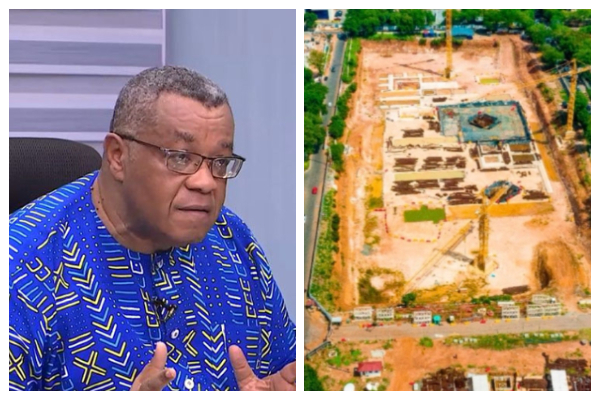Economic resilience urged for Africa amid US tariffs - Chinadaily.com.cn

African countries must move beyond foreign aid and focus on building resilient, self-sustaining economies, experts have warned in light of recent trade tariffs from the United States.
James Shikwati, director of the think tank Inter Region Economic Network, in Nairobi, Kenya, said the new US tariffs of a baseline 10 percent on the majority of African countries could undermine the continent's efforts to diversify and industrialize its economy. The new tariff regime also makes renewal of the African Growth and Opportunity Act, which provides eligible African nations with duty-free access to the US market, doubtful, he said.
On the other hand, Shikwati said the European Union countries have imposed stringent nontariff barriers, which also restrict their market access.
"Western markets, once a pillar of Africa's export economy, now prioritize technological sovereignty, national security, and internal economic resilience over partnership. The West's recent posture threatens Africa's aspiration to deepen economic diversification and industrialization," he said.
Ken Gichinga, chief economist at Mentoria Economics, an economics analysis and business advisory company based in Nairobi, said the US tariffs on African goods — which result in export restrictions — will hurt African countries' industrialization efforts and reinforce their dependency on international partners.
"Africa's future lies in infrastructure investment, social services, and sound governance — elements that strengthen markets from within, not from without," he said.
Gichinga said the recent wave of protectionist policies from Western economies, including nontariff barriers and new tariffs, contrast sharply with China's growing openness. He added that Beijing's move to grant 100 percent duty-free access to exports from 53 African countries signals a major shift in global trade relations, one that Africa must seize.
He urged that Africa, on its part, should craft a joint approach to strategically invest in industrialization, frame uniform quality standards and develop markets.
Shikwati also called on African countries to seize the opportunity of China's growing openness to drive economic development and diversification.
"China's zero-tariff policy offers African exporters a rare opening to the world's largest consumer market — giving the continent strategic leverage in global trade negotiations," he said. "With a young population, abundant raw materials, and untapped industrial potential, Africa must act decisively."
These remarks came just days after African leaders convened in Luanda, Angola, for the US-Africa Business Summit in late June, at which they jointly urged the US to scrap punitive tariffs and reframe its engagement with Africa as a partnership.
Speaking at the summit, Angolan President Joao Lourenco said Africa is no longer seeking charity and prefers deep, mutually beneficial trade partnerships. He urged the US to lift tariff barriers and think about embracing Africa's trillion-dollar economic potential.
"It is time to replace the logic of aid with the logic of investment and trade," Lourenco said, underscoring Africa's desire to be treated as an equal economic partner rather than a passive recipient of charitable aid.
Mahmoud Ali Youssouf, chairperson of the African Union Commission, said the continent's priorities are shifting. Echoing the demand for tariff reform and visa facilitation, he noted that Africa's 1.3 billion people and rich natural resources remain among the world's most underutilized growth frontiers.
"We're not looking for charity. We are building solutions through cooperation, not control," he said.
Gichinga backed the AU chairperson's comment, stating that if the US seeks to remain engaged, it must create and support environments that promote transparency, the rule of law and regional integration.
"One way the US can help is by encouraging fair trade terms and supporting Africa's capacity to attract quality investment," he said. "Tariffs and travel restrictions only work against that goal."








